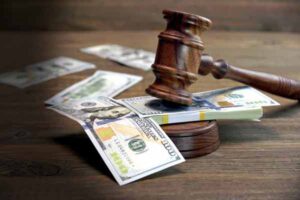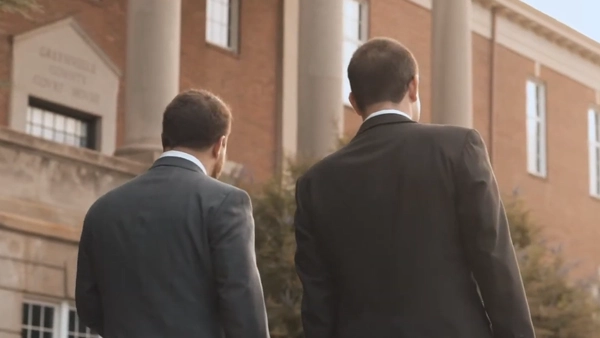 What are Bail and Bond?
What are Bail and Bond?
In the United States, a person is presumed innocent until proven guilty. Therefore, under normal circumstances, a person accused of a crime is not required to sit in jail while he awaits trial to determine his guilt or innocence. However, the court does require some form of assurance that the person will not flee or otherwise fail to appear in court as required. Bail money and bonds are amounts of money that people charged with crimes are required to secure and provide to the court so they can be released from jail while they await trial. If an accused person can secure for himself either bail or bond, then he does not have to wait in jail until a disposition is reached in his case.
What is the Difference Between Bail Money and a Bond?
In South Carolina, bail and bond are often used interchangeably to describe the funds employed to release individuals accused of committing a crime from jail. While the two terms may initially appear indistinguishable, they actually have different meanings.
“Bail” is the amount of money that the court requires an accused person to put up to be released from jail. If the accused has sufficient funds to deposit the bail amount, then he can be released. If the accused appears in court as required, then his bail will be returned. If the accused fails to appear in court as required, the he will forfeit his bail to the court. Oftentimes, though, folks cannot come up with the cash proceeds necessary to satisfy the amount for bail set by the court. In those instances, the accused pays a percentage of the entire amount to a bail bondsman. The bail bondsman then guarantees payment of the total sum if the accused fails to appear in court. The bail bondsman’s promise to pay in exchange for the accused’s release is called a “Bond,” which satisfies the bail amount.
Are There Different Kinds of Bond?
Yes, in fact, there are. The two bond types we see most often in General Sessions are personal recognizance or “PR” bonds and surety bonds. PR bonds permit the accused person to assume responsibility for the bond amount by promising to appear in court when required. A person granted a PR bond merely signs paperwork assuring their appearance and is then released from custody. A surety bond requires the bail bondsman to guarantee the accused’s appearance. If the accused fails to show up in court, then the bail bondsman is responsible to the court for the bond amount. This gives the bondsman a vested interest in ensuring the accused’s appearance for all scheduled court dates. There are also cash bonds, otherwise known as “cash in lieu of bond.” As mentioned above, in some instances, the court will require that the accused provide the entire bond amount in cash before he or she can be released from custody. Sometimes the court will require a percentage of the total bond in cash before the accused can be released. This is known as a “cash percentage in lieu of bond.” If the accused fails to appear or otherwise violates the terms of his release, then he will owe the entire amount to the court.
Who Sets Bond?
County magistrates, Municipal judges, and Circuit Court judges are charged with setting bond for people accused of committing crimes in South Carolina. County Magistrates and Municipal judges have the authority to set bond in most types of criminal cases; however, there are a few notable exceptions. When a crime carries the potential penalty of life in prison or death, Magistrates and Municipal judges are prohibited from setting bail or bond. In those instances, only a Circuit Court judge can set bond. In addition, Magistrates and Municipal judges can refuse to set bond on offenses classified as “violent” by the General Assembly in South Carolina Code Section 16-1-60.
What do I do if I Cannot Make Bond?
The Constitution of the State of South Carolina entitles an accused person to a reasonable bond so long as that person is not a flight risk or danger to the community. If a Magistrate or Municipal judge refuses to set bond for an individual or the bond as set by the court is too high for that person to pay, then his or her attorney can request that a Circuit Court judge set a reasonable bond. This request is framed as either a motion to set bond or a bond reduction motion, and the subsequent hearing is called a “bond hearing.”
What Happens During a Bond Hearing?
Bond hearings are held during a regularly scheduled term of General Sessions court in the county where the accused is being prosecuted. During the hearing, both the prosecution and the defense have an opportunity to address the court. The prosecutor will list the accused’s charges and current bond amount, describe the accused’s prior criminal history, provide a brief recitation of the alleged facts, and explain whether the prosecution believes the person to be a flight risk or a danger to the community. The victim is also afforded an opportunity to briefly address the court. The defense then explains to the court why the accused is not a flight risk or a danger to the community. The accused’s attorney will talk about that person’s ties to the community, family relations, lack of criminal history, and any other circumstance that indicates that the person can be trusted to be released from jail before trial. Often this discussion will lead to a discussion of the weakness of the prosecution’s case inasmuch as that information indicates that the accused is less dangerous or less likely to flee. However, the bond hearing is not a fact-finding expedition, and judges can become frustrated when the prosecution and defense attorneys spend too much time talking about the facts. Your attorney will only emphasize those facts he or she believes will most help you secure a reasonable bond during your bond hearing.
How Can I Get a Fair Bond?
Contact an attorney. If you or your loved one is sitting in jail, then they are Constitutionally entitled to a reasonable bond. Securing your release of the county jail is important for many reasons. To ensure that an accused person is well represented, his or her attorney needs to be able to meet with that person on multiple occasions and at multiple locations. How can your attorney adequately represent you when he has not been to the location of the alleged crime with you? To provide the best representation for you that he can, your lawyer needs you to be available, and you will not be available to help your lawyer if you are stuck in the county jail.
To ensure your best opportunity for a successful defense, you should contact a skilled criminal defense attorney as soon as you or your love one is arrested. Your attorney will need to start working on your case immediately to preserve and present the best defense in your case. At David R. Price, Jr., P.A., we want to help you. The sooner we can get started preparing your defense, the sooner we can resolve your charges so you can move on with your life.







